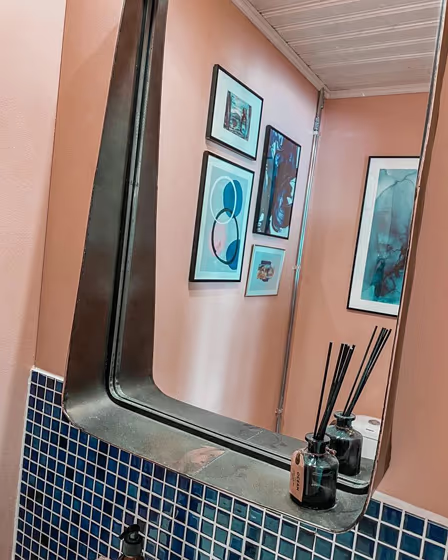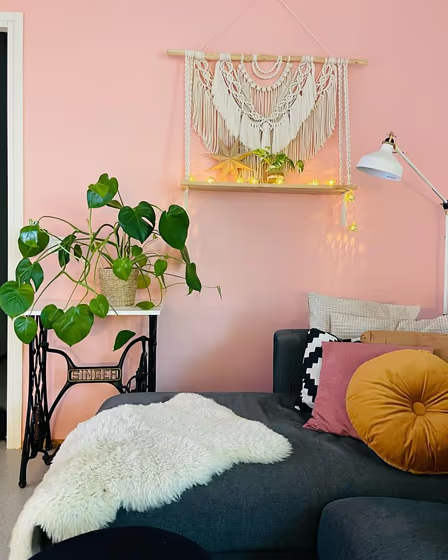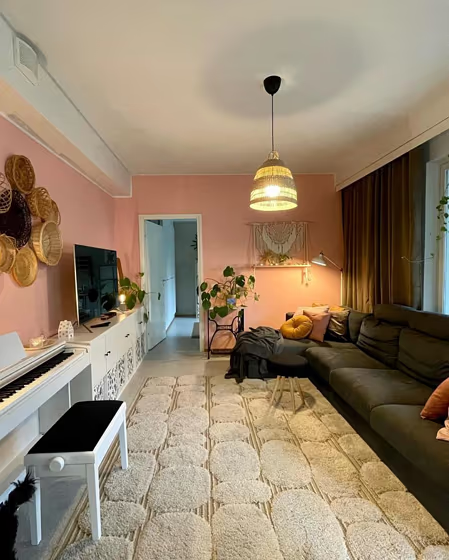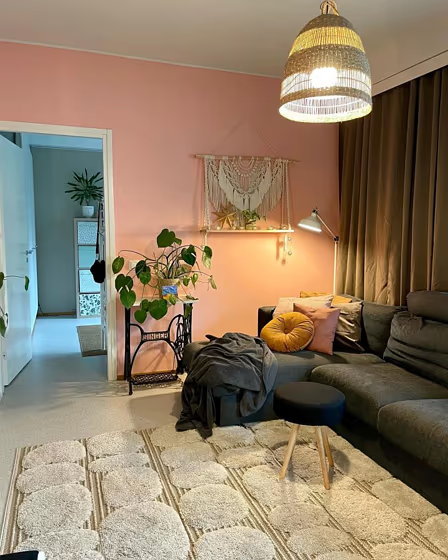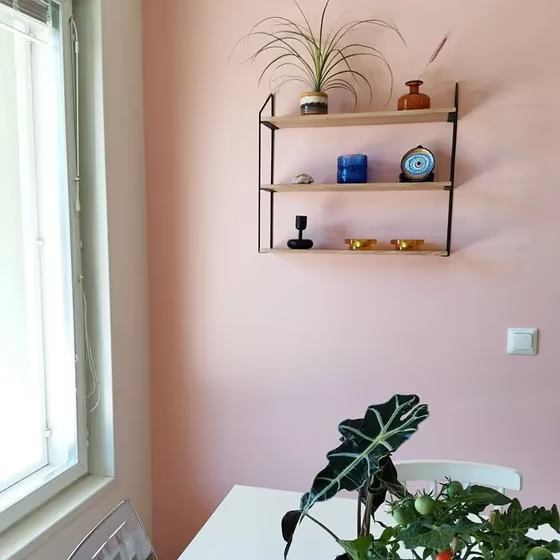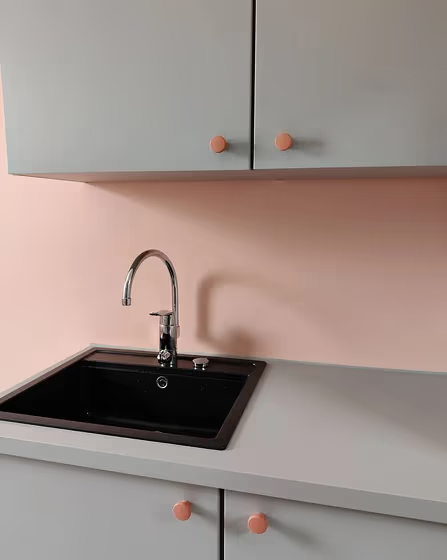Tikkurila Magnolia H320
Contentsshow +hide -
| Code: | H320 |
| Name: | Magnolia |
| Brand: | Tikkurila |
What color is Tikkurila Magnolia?
Introducing Tikkurila's captivating H320 Magnolia, a soft and elegant hue that exudes warmth and sophistication. This versatile color harmoniously pairs with both bold and neutral tones, such as S450 White Sting or G480 Forest Green. Elevate your space with a touch of timeless charm by incorporating H320 Magnolia into your interior design scheme. Create a cohesive and inviting atmosphere by combining this serene color with accents in E560 Soft Linen or K490 Misty Grey. Energize your living space with a versatile and stylish foundation using Tikkurila H320 Magnolia.
LRV of Magnolia
Magnolia has an LRV of 59.7% and refers to Light colors that reflect most of the incident light. Why LRV is important?

Light Reflectance Value measures the amount of visible and usable light that reflects from a painted surface.
Simply put, the higher the LRV of a paint color, the brighter the room you will get.
The scale goes from 0% (absolute black, absorbing all light) to 100% (pure white, reflecting all light).
Act like a pro: When choosing paint with an LRV of 59.7%, pay attention to your bulbs' brightness. Light brightness is measured in lumens. The lower the paint's LRV, the higher lumen level you need. Every square foot of room needs at least 40 lumens. That means for a 200 ft2 living room you'll need about 8000 lumens of light – e.g., eight 1000 lm bulbs.
Color codes
We have collected almost every possible color code you could ever need.
| Format | Code |
|---|---|
| HEX | #EEBEB3 |
| RGB Decimal | 238, 190, 179 |
| RGB Percent | 93.33%, 74.51%, 70.20% |
| HSV | Hue: 11° Saturation: 24.79% Value: 93.33% |
| HSL | hsl(11, 63, 82) |
| CMYK | Cyan: 0.0 Magenta: 20.17 Yellow: 24.79 Key: 6.67 |
| YIQ | Y: 203.098 I: 32.138 Q: 6.731 |
| XYZ | X: 61.81 Y: 58.261 Z: 50.625 |
| CIE Lab | L:80.884 a:15.586 b:12.1 |
| CIE Luv | L:80.884 u:31.004 v:14.489 |
| Decimal | 15646387 |
| Hunter Lab | 76.329, 10.97, 14.106 |



